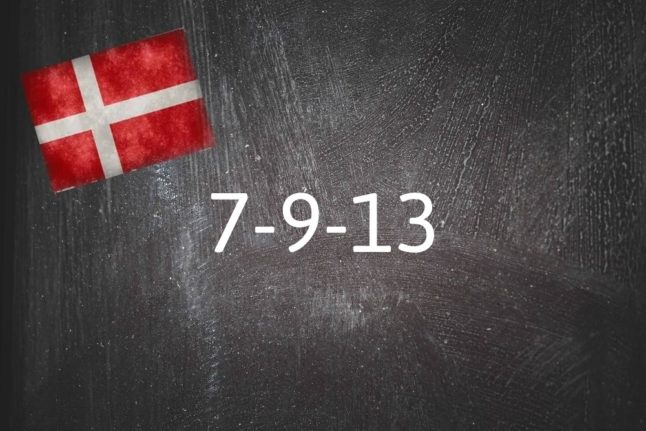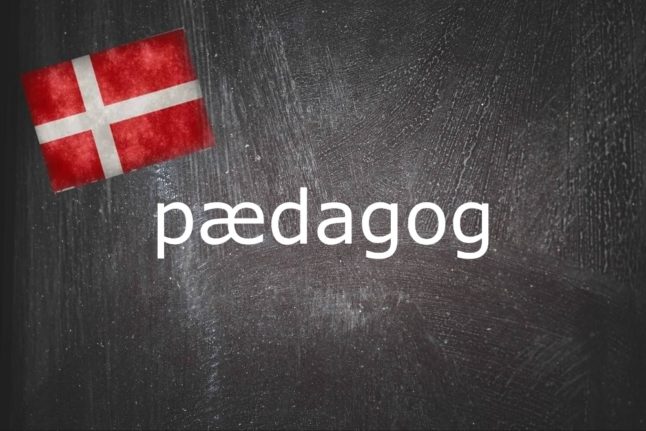What is 7-9-13?
While many cultures have superstitions about the number 13, Danes have one that adds two extra numbers to the equation.
When a Dane says something like jeg har ikke haft influenza i flere måneder (“I’ve not had a case of influenza for months”) or det ligner, det bliver tørvejr under Roskilde Festival, (“It looks like the weather might be dry during the Roskilde Festival”), they might follow it up by saying “7-9-13″ (syv-ni-tretten) and by knocking on some wood three times – once for each number.
The knocks on wood are notable because of a similar superstitious act you might already be familiar with: ‘touching wood’ when you want to avoid tempting fate.
READ ALSO: How did the Danish language end up with its crazy numbers?
Why do I need to know 7-9-13?
Science media Videnskab wrote in 2012 that the phrase is “a strange combination of lucky and unlucky numbers that were put together for a reason that no one knows by unknown people”.
Using the expression is a relatively new superstition which probably doesn’t date further back than the early 20th century, the magazine argues.
“The expression possibly came about because we know of the expression ‘neither 7 or 9’ from the mid-1800s, meaning ‘neither lucky nor unlucky’. Back then, 7 was considered lucky and 9 unlucky,” Nordic language history researcher Ebba Hjorth said at the time.
But what about the 13?
Like in many other cultures, 13 is considered unlucky in Denmark. For example, you won’t find a room 13 at Copenhagen’s exclusive Hotel D’Angleterre, and airline SAS doesn’t usually have a row 13 on its aircraft.
With this in mind, it seems that if any number was to be chosen to add to 7 and 9 to complete the “knock three times” pattern, then 13 would have been the obvious choice.



 Please whitelist us to continue reading.
Please whitelist us to continue reading.
Member comments